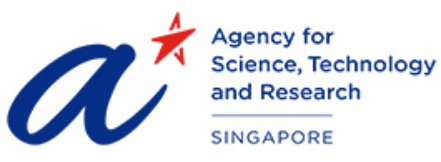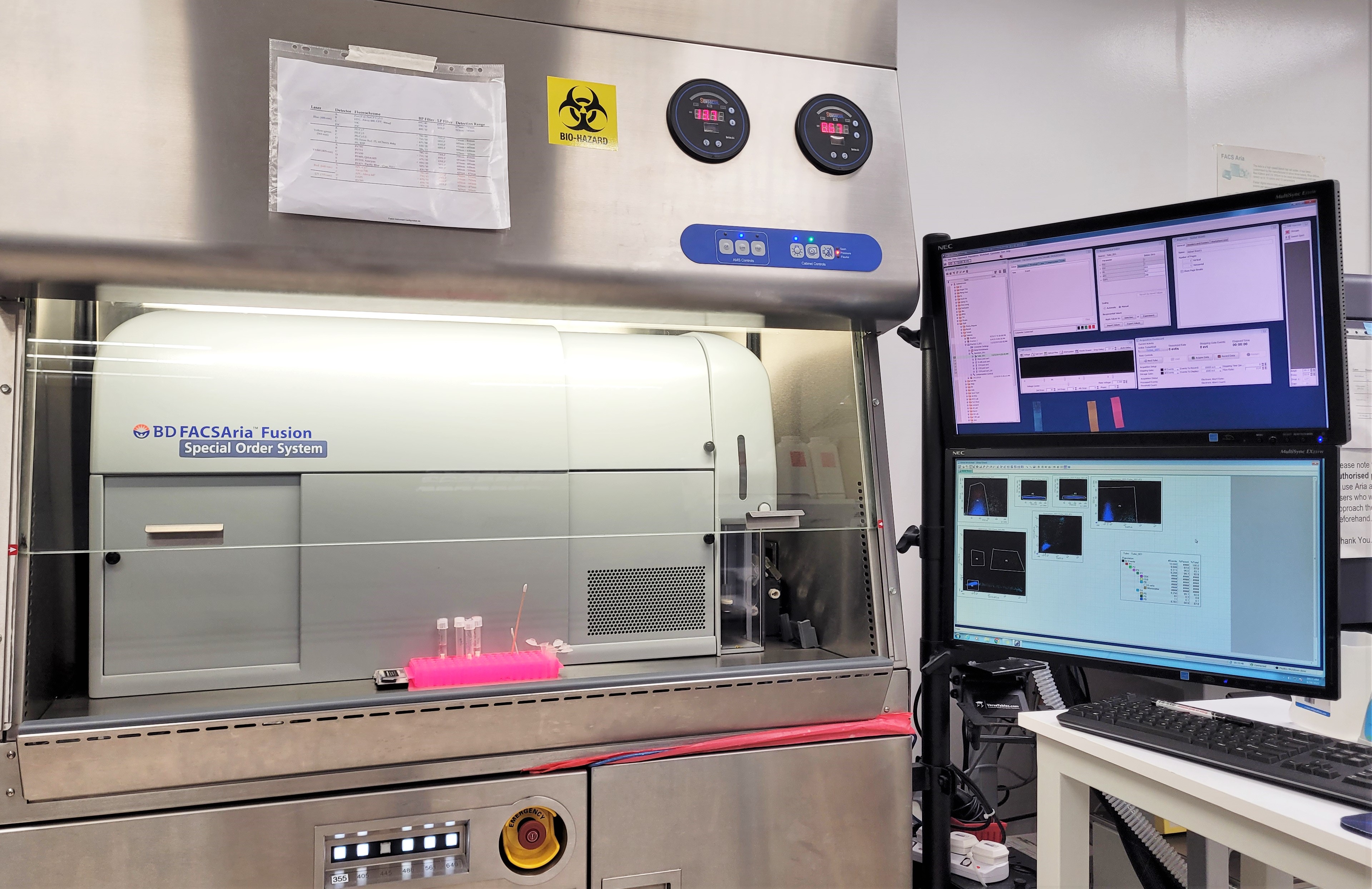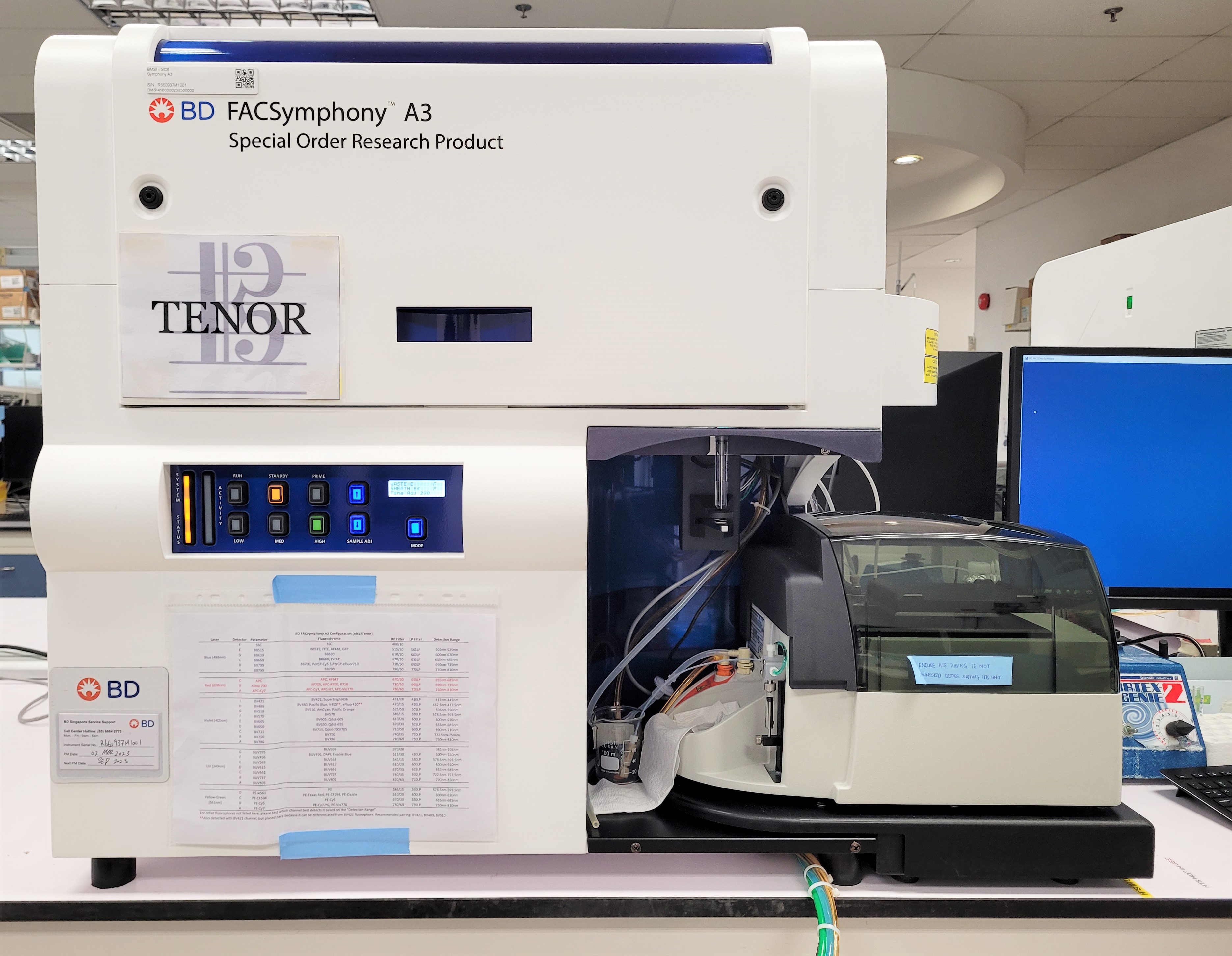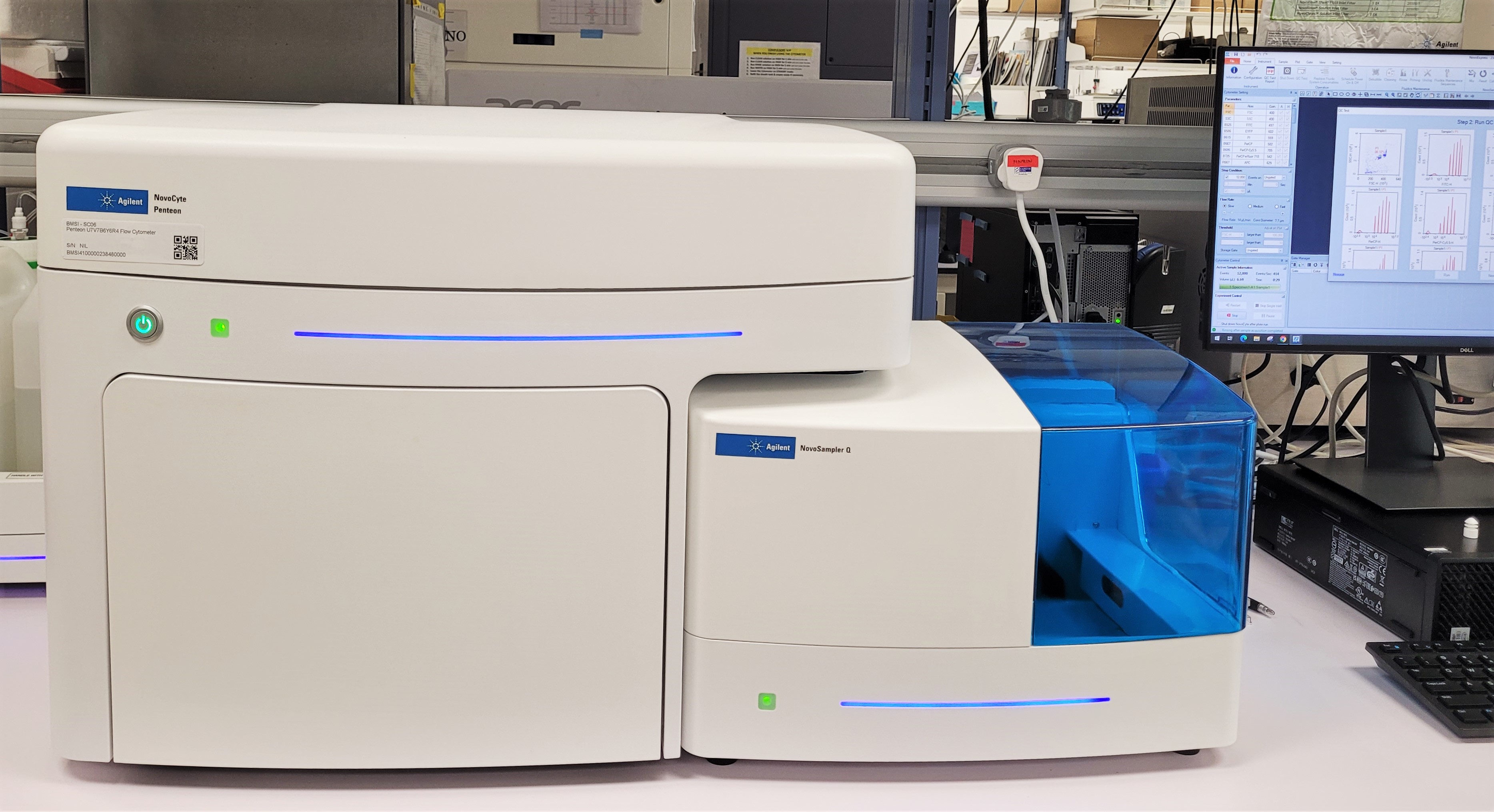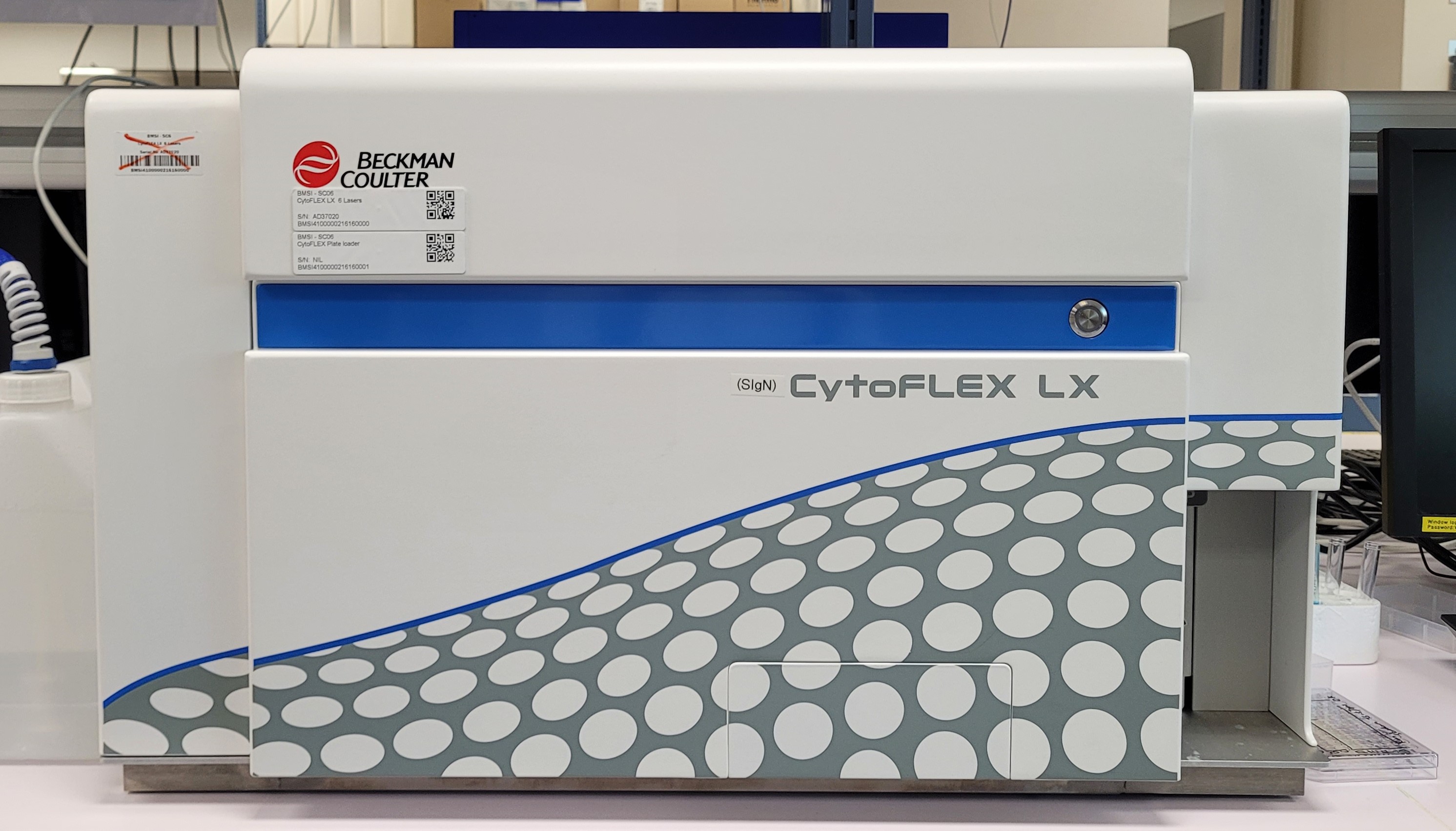A*STAR Singapore Immunology Network (SIgN) Flow Cytometry Platform |
A versatile tool that has revolutionised our ability to study and understand individual cells |
These instruments ensure SIgN, A*STAR, and Singapore remain at the forefront of flow cytometry technology on par with other international research institutes. This will enable researchers in Singapore to conduct cutting-edge research, accelerate innovative discoveries and achieve high impact publications. Flow cytometry is a powerful tool used in biology to analyse properties of individual cells and particles in a fluid suspension. As the cells or particles flow through the system, they pass through lasers that excite fluorescent dyes and labels. The resulting fluorescence is detected and can be analysed to provide information about the characteristics of each individual cell or particle. Flow cytometry is particularly useful for analysing large numbers of cells or particles quickly and accurately. It can be used to quantify a wide range of properties; such as relative size and complexity, as well as the presence or absence of specific surface markers or intracellular proteins. |
Image 1. BD FACSAria Fusion, 5Lasers in biosafety cabinet |
Applications |
Flow cytometry is a powerful tool used in a variety of applications in biology and medicine. Here are some of the common applications for flow cytometry:
These are just a few examples of the many applications of flow cytometry in biology and medicine.
|
Techniques/Key Services |
|
|
|
Key Equipment |
*These cell sorters are placed in biosafety cabinets |
|
|
Image 2. BD FACSymphony A3, 5Lasers |
Image 3. Agilent Novocyte Penteon, 5Lasers |
Image 4. Beckman Coulter CytoFLEX LX, 5Lasers |
For more information, you could reach out to RSC at enquiries@rsc.a-star.edu.sg or the following SIgN Flow Cytometry Platform contacts below. |
1. Access to SIgN Flow Cytometry's PPMS online booking system
|
